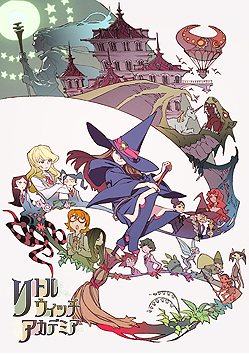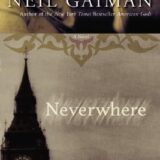I’m conducting a survey of Amazing Stories readers. Yesthankyou. Have you ever bought an e-book from iBooks? Answer yes/no in the comments please, and if there are no comments I will (flinging logic unto the four winds) take absence of evidence to be evidence of absence, and decide that no one buys e-books from Apple and they really ought to give it up as a bad business.
The other day I ventured into the Jobs Memorial Walled Garden for the first time. I was trying to buy a book. But my adventure ended after about thirty seconds when I realized you can’t use iBooks if you do not own an Apple device. We do have an iPad at home; but it’s bionically attached to Shiketa, occasionally pried away by Baby when she wants to watch an AnPanMan video–I could never manage to monopolize the thing long enough to read a book on it. So I gave up.

So, I’m in the position of recommending this book → even though I haven’t actually, as it were, read it. The Japanese original is an icy, Gibson-esque slab of retro-futuristic prophecy and I do recommend it. But as we all know, the quality of English translations from the Japanese can, uh … vary widely.
To see what I mean, check this out. This is migraine-inducing badness. This translation gave me nausea of the brain. And it’s not even the fault of the translator! The problem is that Hideyuki Kikuchi makes use of a lot of cinematic Japanese literary conventions including past and present tenses all mixed up together, fragmentary sentences, head-hopping, and an omniscient narrator who isn’t omniscient but keeps saying that things “maybe were” and “might have been” thus and such. it reads OK in Japanese; a bit pulpy and portentous, like a transcribed manga. But translate it word for word into English and you get a big ugly mess. The translator of Vampire Hunter D probably had his marching orders from the publisher. Shou ga nai.(1) But to make that book readable in English it would have had to be rewritten.

Which is why I can’t recommend Voice Net without reservations. I don’t know what kind of translation it got. And the publisher–NEC Biglobe Publishing–does not inspire blind trust, since they’re so customer-friendly that they make their English catalogue available through iTunes only! They may have farmed the translation out to oDesk for all I know.
The digital publishing industry in Japan has staggered through five or six years of Schumpeteresque churn. New publishing operations popped up amid great hype and went under within months. Picture a bunch of sumo wrestlers stumbling around a dohyo painted like a market-share pie chart, punch-drunk, gurning for the cameras and kicking each other in the kidneys. This goes on until they’re all flat on their backs with Xs instead of pupils in their eyes. Then Amazon waltzes in, ties their limp cadavers together by the mawashi, flings them into the customer seats, and scoops the Emperor’s Cup. Barely six months after the Kindle hit Japan, Amazon already has a 40% share of the e-book market.
My guess is that NEC Biglobe Publishing was orphaned in this civil war and abandoned on the internet, barely alive. It was the English sf imprint of a venture called Sugoi Books (“Wonderful Books”) that shut down last year. The website is rather depressing: like finding the digital hulk of a sunken ship, and discovering the body of a good friend trapped in his cabin.

Shinichi Hoshi died in 1997 so I assume this is all one to him now. But it’s a shame more English-language readers can’t get their hands on his legacy. He mostly wrote short-short stories. They’re crisp, lapidary, a bit cryptic, and sometimes collapse into bad jokes. Someone called him the haikuist of sf; that seems about right. Voice Net is one of his few full-length novels. It depicts a future society in which “information banks” hoard individuals’ personal data–which they collect via the telephone network. By analyzing this data they seek to manipulate and ultimately control humans like gods. It was published in 1970.
1970!
If nothing else, Voice Net supports my theory that Japan is ten to twenty years ahead of the West in most things socio-technological (the gap is now closing fast, though). It also happens to be a highly readable novel. It’s marred, in my opinion, by Hoshi’s weakness for cartoonish comedy, which undercuts the suspense here. But it’s probably worth $5.99–if you have an Apple device. The prose is concise and efficient enough that even Google Translate would probably render it into serviceable English.
If Hoshi were alive today, he might enjoy the irony that his translated works in English have been corralled by 1) a hyper-competitive American lifestyle accessory vendor and 2) a defunct subsidiary of a conglomerate that “strives through ‘C&C’ to help advance societies worldwide toward deepened mutual understanding and the fulfillment of human potential.”(2) Omniscient information banks? Not much!
As long as corporate stupidity and cupidity prevail, mankind will remain free, despite our own best attempts to tie ourselves down, Gulliver-like, with life-logging monitors and GPS-equipped smartphones, etc. etc.
***
1. Shou ga nai: a Japanese expression meaning roughly “Oh well. So it goes.” The Japanese language inspires a very Vonnegut-esque outlook on life.
2. It is not, as has previously been noted, a policy of this blog to wring cheap laughs out of Janglish. But for a thirty-second education in how bad it can get, I direct your attention to the NEC Global website.











Ha! So that’s two iBooks non-users, three counting me. I’m not representative of the average consumer either but I am Apple’s target demographic. I think we all are. Hmmm things not looking too good for Cook & co.
More or less the same as Gary – no Apple device and not an e-book person. If I did read e-books, I would not choose Apple.
I have no idea what the sales numbers are for Apple ibooks and so can’t speculate on the business side. I do know that I am hardly representative of the average consumer. If I was, Apple would be out of business (or would have had to change their business practices).
I’ve never bought an e-Book from iBooks, but then there wouldn’t be any point, not owning any Apple devices. I don’t buy e-books from anywhere, though I do have a Kindle and a Rooted Nook. The latter means the former is now retired.